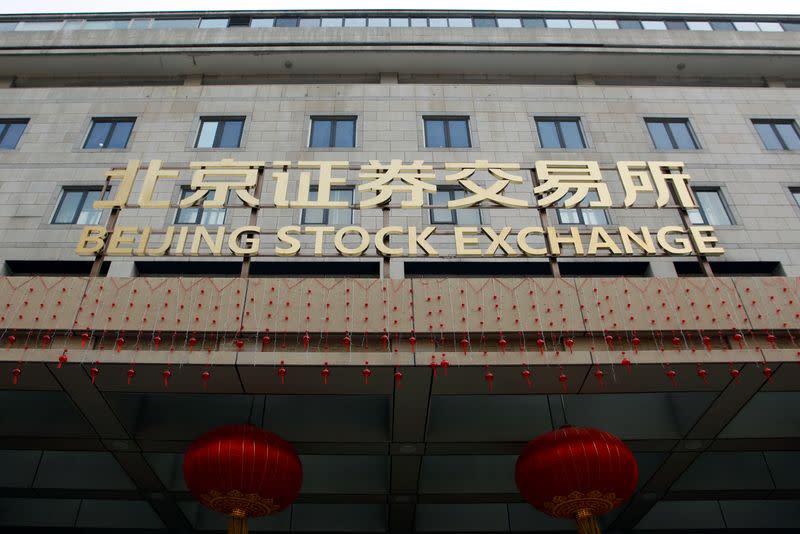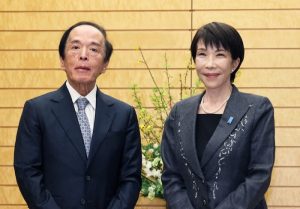Chinese authorities have implemented a policy that may have artificially pumped up the value of shares on the Beijing Stock Exchange, sources say.
Major shareholders of companies listed on the Beijing Stock Exchange have been prevented from selling stock, because of fears that such sales could inhibit a long-desired rally, three people familiar with the matter said.
The bourse, launched two years ago, was set up to help facilitate funding for innovative small firms, dubbed “little giants”, but had languished due to lack of investor interest.
But the market’s benchmark 50 Index has surged 46% this month on the back of recent measures by authorities, such as lowering the required amount of funds an investor must have in their stock account to invest, improving trading mechanisms and encouraging mutual funds to participate in the market.
ALSO SEE: China to Probe Troubled Shadow Bank Steeped In $64 Billion Debt
‘Protecting the rally’
A “major shareholder” is one with a stake of 5% or more and is required to make a public filing with the relevant stock exchange before selling shares, according to rules for China’s bourses.
The Beijing exchange has been rejecting those filings, said the people who were not authorised to speak to media and declined to be identified.
It was not immediately clear how long this new policy would remain in place, they added.
The Beijing exchange and the China Securities Regulatory Commission did not immediately reply to requests for comment.
The bourse said separately in a statement on Monday morning ahead of this report that it was closely monitoring trading to ensure normal market order.
The so-called window guidance – where directives are made orally without written documents – is aimed at protecting the rally, the sources said.
One noted that without the guidance, the share price surge “could prompt institutional shareholders to reduce their holdings which could knock the index down again.”
The Beijing bourse currently houses 232 companies with a combined market capitalisation of 366 billion yuan ($50 billion).
By comparison, the Shanghai bourse is home to 2,256 firms worth 47 trillion yuan in total, while almost 3,000 companies listed in Shenzhen have a total market capitalisation of 31.9 trillion yuan.
The Shanghai Composite Index is up 0.4% this month, while the Shenzhen Composite Index is down 0.8%.
- Reuters with additional editing by Jim Pollard
ALSO SEE:
Evergrande Chief’s Two Luxury Mansions ‘Seized by Creditor’
China-Tied Fund Seeks to Axe Australia Rare Earths Firm’s Head
Citi Opens Clearing, Settlement Deal with New Beijing Bourse
Newly Listed Companies Soar At Beijing Stock Exchange Launch
























